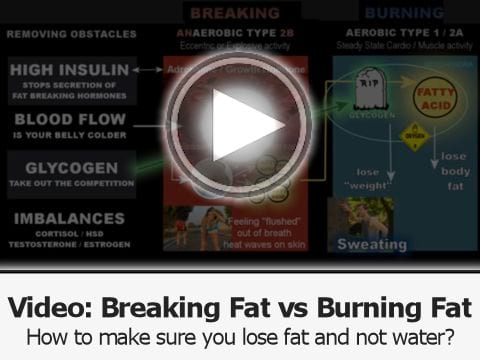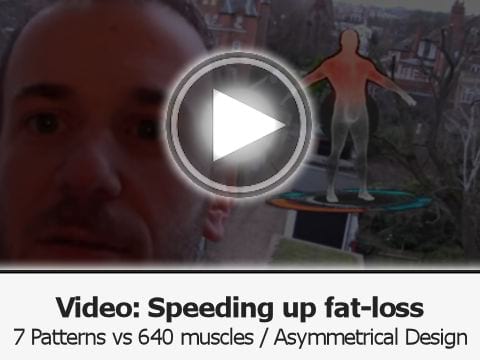
It’s not a secret that Cortisol and weight gain goes hand in hand. But have you ever wondered why your belly seems to take the hit and what triggers the process?
Cortisol and Weight Gain
We like to think Cortisol is a function of stress, but in reality, we can get high levels of this “fight or flight” hormone for various reasons:
- Exercise is technically perceived as physical stress for your body. Sure, it’s good for you, but nothing comes without a cost – in our case, a spike in cortisol.
- Low glycogen levels, which may be essential to weight loss, can trigger Cortisol release. Low levels of glycogen are often achieved through either diets or aerobic training.
- Lack of sleep produce cortisol.
- Stress is still a big NO-NO when it comes to Cortisol, your boss is not doing your health any favors.
- Processed foods often contain chemicals that contribute to Cortisol. If you don’t eat super-healthy, unfortunately your body perceives that as a type of stress.
- Water Pollution, Air Pollution, Lack of REAL light – they all help your cortisol get out of wack, and you can assume that if you live a modern life – that’s you.
- If any of these points above concerns has been true for a good part of your adult life, you can assume some damage to the gut lining, this can be repaired overtime but until you do – this will also produce cortisol.
What is the deal with HSD type 1
HSD type 1 or “11 beta-hydroxysteroid dehydrogenase-1” is your body fat storage enzyme. It resides deep within fat tissue and is found in higher concentrations in abdominal tissue. HSD type 1 converts in-active cortisone into the active form of Cortisol. This many explain in part why Cortisol concentrations are as much as 400% higher in your midsection.
The connection between Cortisol and weight gain is far deeper though and runs deeper than stress. One of the triggers that really put things in motion is Insulin. Insulin activate HSD enzymes, which in turn converts Cortisone into Cortisol. Cortisol inventively leads to weight gain.
Connecting the Dots
This is why the BellyProof program put a direct approach to deal with all three in the following way:
- You will use natural supplements such as Vitamin C and Ashwagandha at strategic times to reduce high Cortisol levels when it’s needed the most.
- We take steps to improve sleep and physical recovery, which translate into reduced Cortisol.
- BellyProof offers a unique IF strategy (very unique) called the LION Protocol to allow for proper timing. This has been cleverly designed to reduce Insulin to a halt before training. This is also done to maximize the conditions for Alpha-2 receptors inhibitions that makes for stubborn fat stubborn.
- Some of the strategies we outlined in this program, will include the optional usage of Citrus Peel flavonoids / PMFs to inhibit HSD activity.
- We accept Cortisol’s role, for example – accepting Cortisol level spike after training or followed a glycogen depletion. Rather than ignoring Cortisol due to it being inconvenience in the “traditional theories for weight loss / calories”, the program attempts to match it to the hormonal cycles that do benefit us through the anaerobic stage.
- We take steps to repair gut function, this has a LONG-TERM effect on your Cortisol levels.
In conclusion
A few key bits of information to remember:
- Abdominal tissue has an average of 400% more cortisol receptors.
- The enzyme partly responsible is HSD (type 1), as it is found in deep belly fat. Insulin is one of the biggest triggers to activate HSD enzymes, which in turns increase cortisol levels and lead to more fat storage in your belly.
We can therefore safely say that any strategy to lose weight, that doesn’t deal with the effects of cortisol and weight gain, HSD type 1 or even the proper timing of Insulin, will lack results.
Hopefully, you can now see that Cortisol runs deeper than “the fight or flight” response or everyday stress. I laugh whenever I hear that mediation is “good enough” to promote relaxation, reduced cortisol and loss of fat. Good enough for who?
Hopefully, this post gives you an insight to the problem and how you can expect to solve it once you do the BellyProof protocol.





